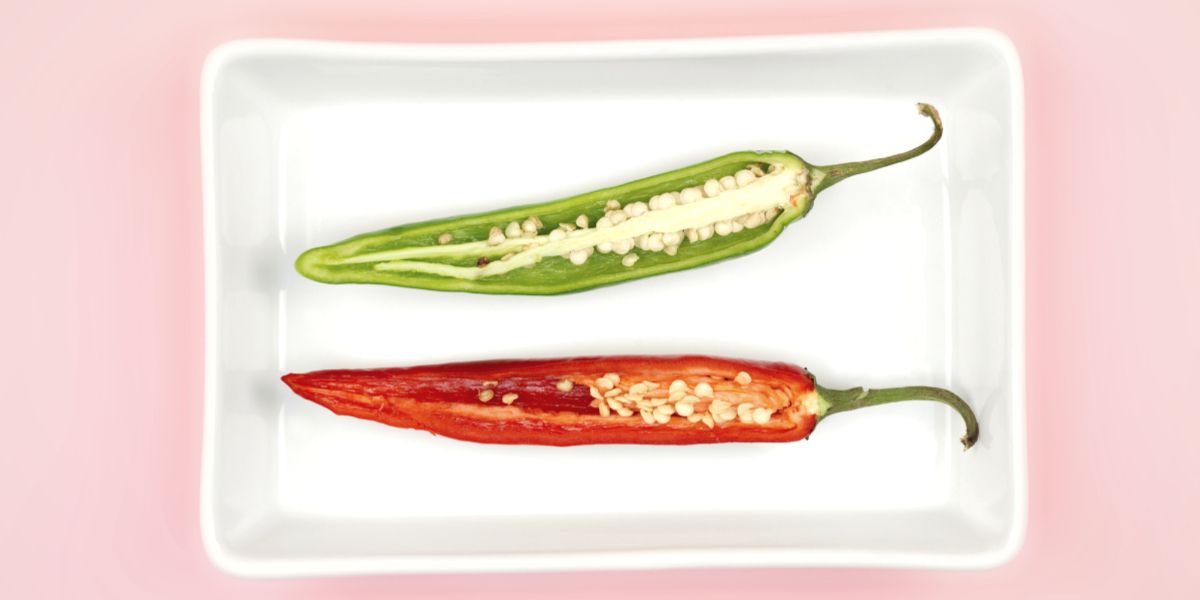How Do You Grow Chilies From Dry Seeds?

It is perfectly possible to grow chili pepper plants from dried seeds. You can try to plant the seeds as they are, but the germination rate may not be very high.
To increase the germination rate, you can pre-soak the pepper seeds and use the paper towel method. So, by using these methods, you can increase the chance of the seeds germinating.
Are you a chili pepper lover who wants to learn how to grow chili pepper plants at home? Look no further! Click below to find out which must-have books will guide you through the process of growing your own chili peppers...
Once the seeds have germinated, you can grow the chili plants in pots or outdoors in the ground.
Table of Contents
Can you grow dried chili seeds?
Dried chili pepper seeds are still viable after many years. Therefore you can grow chilies with success from dried seeds.
The easiest way to grow chili peppers from dried seeds is to sow them as any other viable seed. Your success rate may be lower than with fresh seeds, though.
To increase the success rate for making dry seeds sprout is by first pre-soaking them. By doing this, you'll essentially moisten the seeds.
In any case, given the right conditions, the seeds will likely sprout and begin to grow.
If the seeds can survive drying in the sun on the plant for a long time, then being stored in an (ideally) cool and dry place shouldn't be a problem. And why wouldn't you want to save your own seeds?
They are free, and you can get a lot more out of them than just one season. You can also be sure of what you are getting. If seeds are kept dry and dark, they can last for many years.
How to grow chilies from dried seeds
Germinating dried chili seeds as they are
You can try to germinate the dried pepper seeds as they are without using any of the more advanced techniques.
If you have dried chilies, take the seeds out of them. The seeds should be dry and brittle. Otherwise, find some dried seeds that you have stored in a dry place or from a seed packet.
Put a few seeds in a small pot with ordinary potting soil. Make sure they are covered with soil such that they don't get any light.
An alternative is to put a few seeds in a Jiffy pod. You may also choose just to put one seed per Jiffy pod, but you risk that the seed may not germinate.
If multiple seeds have germinated in a pot, you may need to move some of them to other pots or simply remove them.
Using pre-soaking to help germination
A more advanced technique to grow chilies from dried seeds is to pre-soak them before you let them germinate.
To pre-germinate the seeds, place them in a container and soak them in water or cold tea for 24 to 48 hours. Preferably you should use filtered water.
After that, there are different ways to germinate seeds, including placing them in a wet paper towel, in a plastic bag, or even in the refrigerator. But, you can also put them in a pot or a Jiffy pod, as described above.
Germinating chili seeds using the paper towel method
The germination of chili seeds is not very difficult. It is not even necessary to have advanced gardening skills to achieve results.
Place the seeds on a wet paper towel. Then, put the paper towel in a Zip-loc bag and place it in a warm, dark location.
Check the seeds every day. You should give the seeds some water to keep them moist.
After about 7-10 days, you can examine the seeds closer. Most of the seeds should have germinated. If not, you can wait a few more days.
Once the seeds have germinated
Plant the seedlings in pots once the seeds have sprouted. Keep the pots indoors in a warm location.
Water the newly planted seeds and keep the soil moist. But also make sure that the pots are well-drained such that the soil does not become overly wet.
You will need to provide a light source, either natural (direct sunlight) or artificial (grow lights). Also, you will need to have the right temperature to ensure that your chili seedlings can grow well.
The temperature should be between 20°C and 27°C.
When seedlings are about 2,5 cm to 5,0 cm tall, you can transplant them into larger containers.



